Salinas Price: It's time to end World War II
It's time to end World War II
Hugo Salinas Price
Oct 29, 2009
The shooting, the bombing and the killing of World War II stopped in August of 1945, and the War was formally over.
The United States and Britain knew the War was won, in 1944.
At that time, a Conference was called among the 44 Allied Powers, to determine the nature of the world's monetary and financial system after the fighting was over. It was held at Bretton Woods, New Hampshire, USA, in July of 1944.
As a result of the Conference, a set of Agreements were signed.
The most important of all the agreements was the one that established that gold should be the money to be used to settle all trade deficits between nations, but in lieu of gold, dollars could be used to settle these deficits; at the option of all Central Banks, these banks could demand gold from the United States Treasury at a redemption rate of $35 dollars for each ounce demanded.
Thus, the United States could pay for its trade deficits either in gold or in dollars. No other nation was allowed to pay for its trade deficits in its own currency; for all other nations, settlement of trade deficits had to be done with gold or with dollars previously acquired in the course of trade with the U.S. or with other nations who had dollars. In other words, dollars - and only dollars - were as good as gold.
General de Gaulle (President of France, 1959 - 1969) has been quoted as saying that this was "an exorbitant privilege". And so it was, a privilege of the victor in World War II.
Under the rules of war, a country at war may loot and plunder its enemy, if it can do so. Booty has always been a great incentive to get soldiers to fight, and World War II was no exception. When a war is over the looting and plunder stops and nations renew commercial relations, exchanging their goods in peaceful international trade.
In forcing on the Bretton Woods Agreements the acceptance of the dollar as a means of settling international debts, along with gold, the US established the will of a victorious power to continue to loot and plunder the whole world.
Formally, World War II was over. But in fact, World War II was not only not over, but the US had implicitly declared war on the whole rest of the world by imposing the dollar as a means of settling trade deficits, along with gold.
By running huge trade deficits which arose out of its expansion of credit and consequent money-printing, the US was able to leverage its gold holdings and send abroad masses of dollars to pay for imports. The exporting countries received dollars - not gold - for their export surpluses to the US. The dollars began to pile up in foreign Central Banks as "Reserves". The exporting countries, not being nuclear powers, were afraid to demand gold in payment of their export surpluses, since such a request would very probably irritate the great power, and nobody wanted to offend the USA.
All this export of dollars in payment of trade deficits finally moved General de Gaulle to demand gold for dollars held by the Banque de France. This annoyed the US government and shortly thereafter, not coincidentally, there was an outbreak of rioting in France which threatened to unseat President de Gaulle, who had offended the US by simply asking for France's gold.
The US, by means of the "dollar as good as gold" provision of the Bretton Woods Agreements, has been looting and plundering the rest of the world, non-stop, since the end of World War II. Very subtly, based on Bretton Woods, the US has continued to act as the triumphant victor in a war; it has never since the end of World War II " [reassumed] among the powers of the earth, the separate and equal station to which the Laws of Nature and of Nature's God entitle" it, as expressed in the Declaration of Independence, 1776.
The US has not assumed an equal station among the powers of the earth, since World War II came to a formal end. It has continued to impose its Imperial Will upon the rest of the world, as vassal states, and has been duly exacting tribute from the rest of the world, by means of its paying its trade deficits with dollars, which are nothing at all since 1971. The US did not truly "normalize" relations, neither with the Axis powers when World War II was declared formally over, nor with the rest of the world.
Commerce is an eminently peaceful activity. The seller forces no one to buy; the buyer forces no one to sell. The means of payment of commerce, since written history began, has been either goods for goods, i.e., barter, or goods for gold - a perfected form of barter. Silver has also worked well, as a means of payment of commerce. But anything else, any innovation, anything decreed to be a means of payment by anybody whatsoever, cannot be anything but an imposition, a violation of the rules of commerce.
The present ruinous condition of the world's finances and its lopsided industrial development has not yet corrected itself. If anything, we are in the "eye of the hurricane" for the moment.
If all governments in the world were to collapse, commerce would not disappear; it would arise out of the disorder, and its money would be gold or silver, or both. Gold and silver are the natural means of payment for humans. Such is the intellectual decline in the world, that those in power have forgotten this; they and their paid lackeys in the financial press and financial media are dreaming when they think that they can come up with some effective but artificial, fiat means of payment, decreed by some governmental body. Any such fiat means of payment will inevitably preserve privileges for some, and impose burdens on others. Commerce cannot thrive under those conditions; it will go into permanent decline, along with our industrial civilization.
"Regionalizing" fiat currencies will only have the result of pitting region against region - as illustrated in Orwell's "1984". This is the fallacy underlying all talk about a "multi-polar world" while ignoring the need for a neutral, real and time-tested medium for exchange of goods.
The world's principal powers should convene and come to an agreement for the establishment of the world's monetary and financial system on the basis of gold as the exclusive medium for settlement of international trade deficits - a neutral, real and objective medium for commerce and finance.
If the governments of individual nations want to allow their banking systems to diddle with fractional banking and inflation, it is their right to do so. But when it comes to settling accounts with other nations, they must come up with the required gold.
Only then will we be able to say that World War II has ended.
###
27 Oct, 2009
Hugo Salinas Price
President
Asociación Cívica Mexicana Pro Plata, A.C.
Mexico City
email: plata@plata.com.mx
website: http://www.plata.com.mx
Labels: economic crisis, fiat money, gold, Hugo Salinas Price















![[Most Recent Quotes from www.kitco.com] [Most Recent Quotes from www.kitco.com]](http://www.kitco.com/images/live/t24_au_en_usoz_6.gif)
![[Most Recent Quotes from www.kitco.com] [Most Recent Quotes from www.kitco.com]](http://www.kitco.com/images/live/au_go_0030_ny.gif)
![[Most Recent Quotes from www.kitco.com] [Most Recent Quotes from www.kitco.com]](http://www.kitco.com/images/live/au_go_0365_ny.gif)
![[Most Recent Quotes from www.kitco.com] [Most Recent Quotes from www.kitco.com]](http://kitconet.com/charts/metals/silver/t24_ag_en_usoz_4.gif)




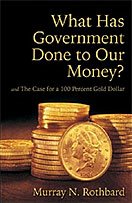

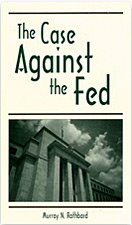

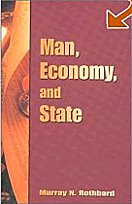

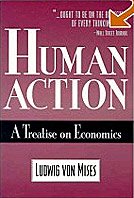
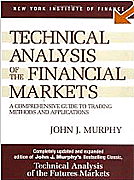





0 ΣΧΟΛΙΑ (COMMENTS):
Post a Comment
<< Home